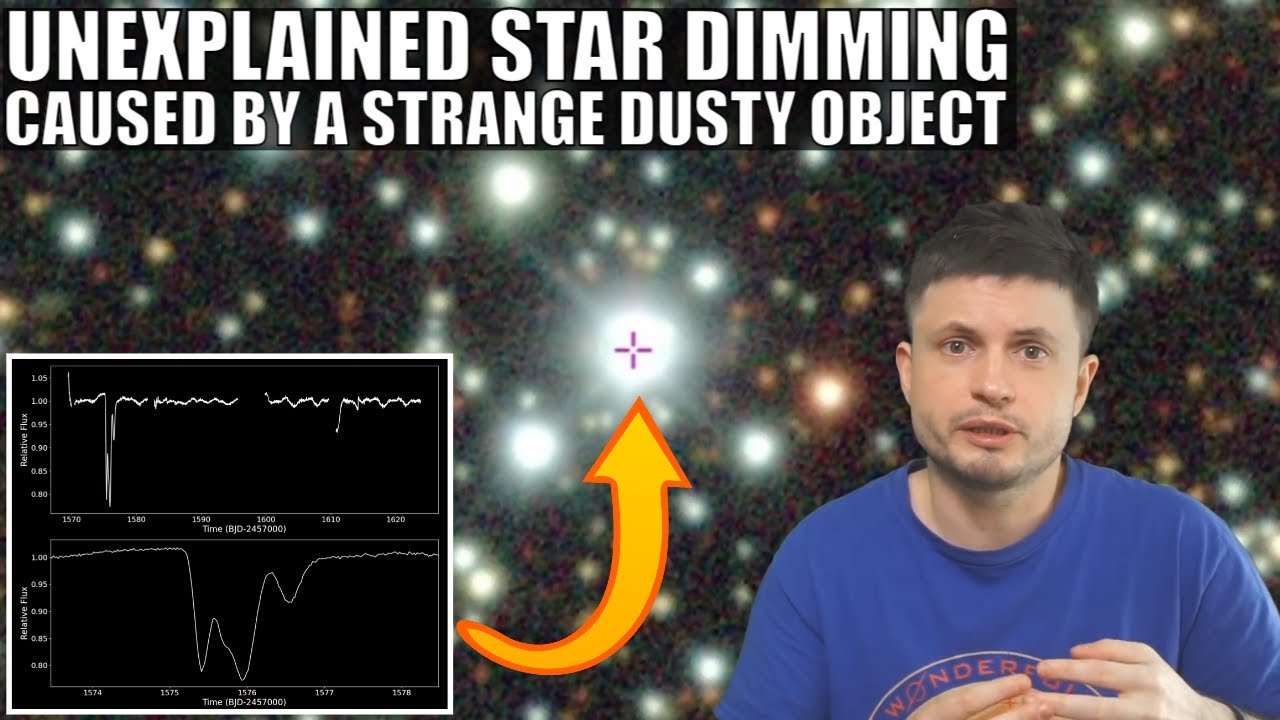A search of data captured by the Transiting Exoplanet Survey Satellite (TESS) for analogues of the anomalous dimming star KIC 8462852 (Tabby’s Star) has turned up a seemingly even more extreme object. The widely separated binary star TIC 400799224 (TESS catalogue number exhibits quasi-periodic dips in brightness with a period of 19.77 days which reduce the intensity of the stars by up to 75%, with the dimming events having a complex structure as opposed to the sharp onset, flat bottom, and sharp end of planetary transit events.
The research paper is “Mysterious Dust-emitting Object Orbiting TIC 400799224”, with the following abstract:
We report the discovery of a unique object of uncertain nature—but quite possibly a disintegrating asteroid or minor planet—orbiting one star of the widely separated binary TIC 400799224. We initially identified the system in data from TESS Sector 10 via an abnormally shaped fading event in the light curve (hereafter “dips”). Follow-up speckle imaging determined that TIC 400799224 is actually two stars of similar brightness at 0.62 arc second separation, forming a likely bound binary with projected separation of ∼300 au. We cannot yet determine which star in the binary is host to the dips in flux. ASAS-SN and Evryscope archival data show that there is a strong periodicity of the dips at ∼19.77 days, leading us to believe that an occulting object is orbiting the host star, though the duration, depth, and shape of the dips vary substantially. Statistical analysis of the ASAS-SN data shows that the dips only occur sporadically at a detectable threshold in approximately one out of every three to five transits, lending credence to the possibility that the occulter is a sporadically emitted dust cloud. The cloud is also fairly optically thick, blocking up to 37% or 75% of the light from the host star, depending on the true host. Further observations may allow for greater detail to be gleaned as to the origin and composition of the occulter, as well as to a determination of which of the two stars comprising TIC 400799224 is the true host star of the dips.
